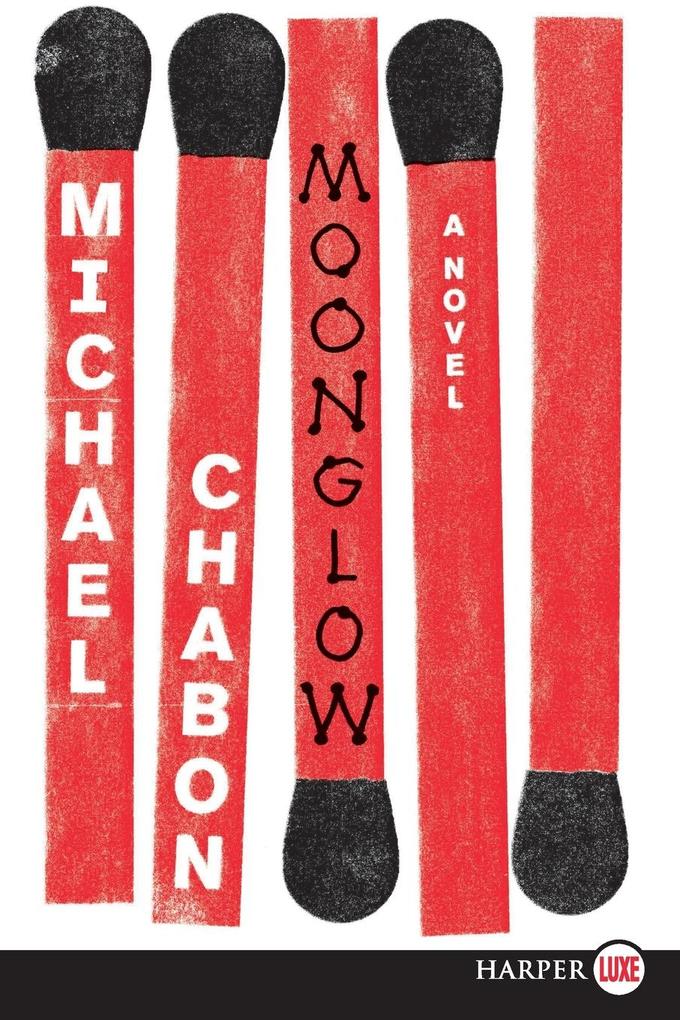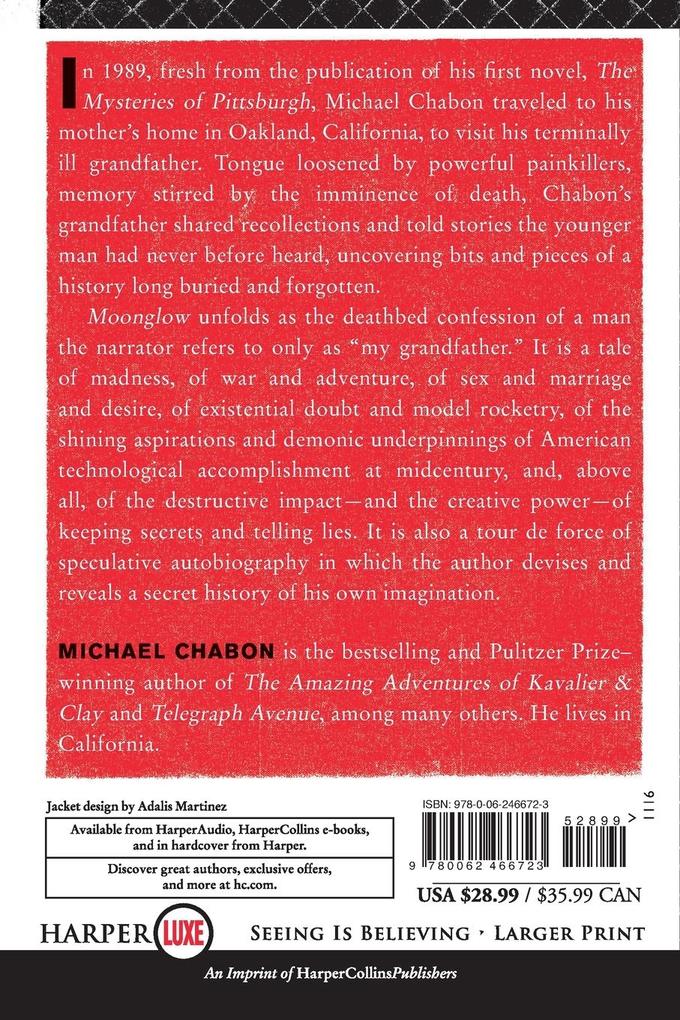
Zustellung: Mo, 05.05. - Do, 08.05.
Versand in 6 Tagen
VersandkostenfreiBestellen & in Filiale abholen:
In 1989, fresh from the publication of his first novel, The Mysteries of Pittsburgh, Michael Chabon traveled to his mother’ s home in Oakland, California, to visit his terminally ill grandfather. Tongue loosened by powerful painkillers, memory stirred by the imminence of death, Chabon’ s grandfather shared recollections and told stories the younger man had never before heard, uncovering bits and pieces of a history long buried and forgotten.
Moonglow unfolds as the deathbed confession of a man the narrator refers to only as “ my grandfather. ” It is a tale of madness, of war and adventure, of sex and marriage and desire, of existential doubt and model rocketry, of the shining aspirations and demonic underpinnings of American technological accomplishment at midcentury, and, above all, of the destructive impact— and the creative power— of keeping secrets and telling lies. It is also a tour de force of speculative autobiography in which the author devises and reveals a secret history of his own imagination.
Moonglow unfolds as the deathbed confession of a man the narrator refers to only as “ my grandfather. ” It is a tale of madness, of war and adventure, of sex and marriage and desire, of existential doubt and model rocketry, of the shining aspirations and demonic underpinnings of American technological accomplishment at midcentury, and, above all, of the destructive impact— and the creative power— of keeping secrets and telling lies. It is also a tour de force of speculative autobiography in which the author devises and reveals a secret history of his own imagination.
Produktdetails
Erscheinungsdatum
26. Januar 2021
Sprache
englisch
Seitenanzahl
688
Autor/Autorin
Michael Chabon
Verlag/Hersteller
Produktart
kartoniert
Gewicht
1099 g
Größe (L/B/H)
229/152/41 mm
ISBN
9780062466723
Entdecken Sie mehr
Bewertungen
0 Bewertungen
Es wurden noch keine Bewertungen abgegeben. Schreiben Sie die erste Bewertung zu "Moonglow LP" und helfen Sie damit anderen bei der Kaufentscheidung.










